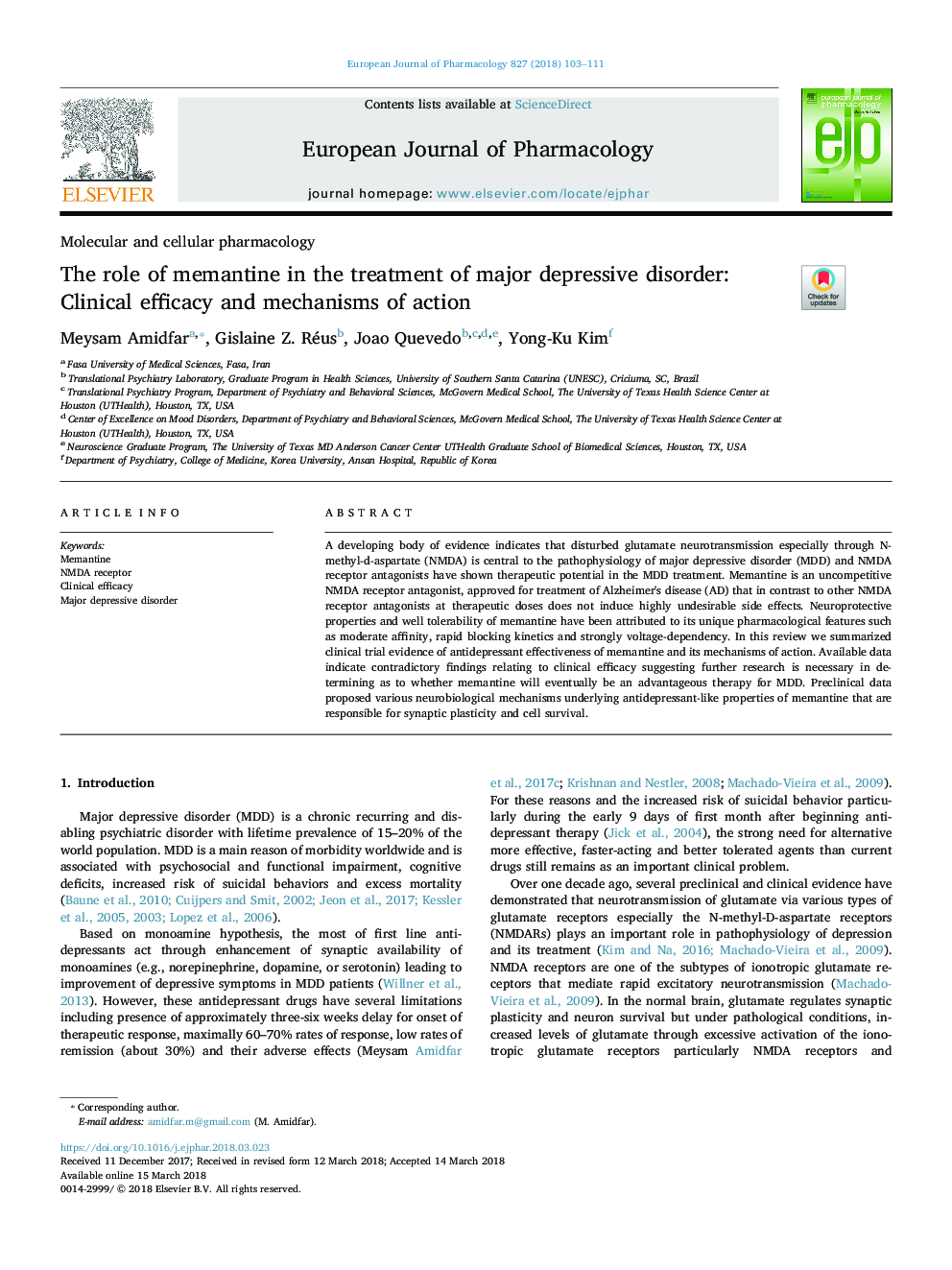| Article ID | Journal | Published Year | Pages | File Type |
|---|---|---|---|---|
| 8529118 | European Journal of Pharmacology | 2018 | 9 Pages |
Abstract
A developing body of evidence indicates that disturbed glutamate neurotransmission especially through N-methyl-d-aspartate (NMDA) is central to the pathophysiology of major depressive disorder (MDD) and NMDA receptor antagonists have shown therapeutic potential in the MDD treatment. Memantine is an uncompetitive NMDA receptor antagonist, approved for treatment of Alzheimer's disease (AD) that in contrast to other NMDA receptor antagonists at therapeutic doses does not induce highly undesirable side effects. Neuroprotective properties and well tolerability of memantine have been attributed to its unique pharmacological features such as moderate affinity, rapid blocking kinetics and strongly voltage-dependency. In this review we summarized clinical trial evidence of antidepressant effectiveness of memantine and its mechanisms of action. Available data indicate contradictory findings relating to clinical efficacy suggesting further research is necessary in determining as to whether memantine will eventually be an advantageous therapy for MDD. Preclinical data proposed various neurobiological mechanisms underlying antidepressant-like properties of memantine that are responsible for synaptic plasticity and cell survival.
Related Topics
Life Sciences
Neuroscience
Cellular and Molecular Neuroscience
Authors
Meysam Amidfar, Gislaine Z. Réus, Joao Quevedo, Yong-Ku Kim,
